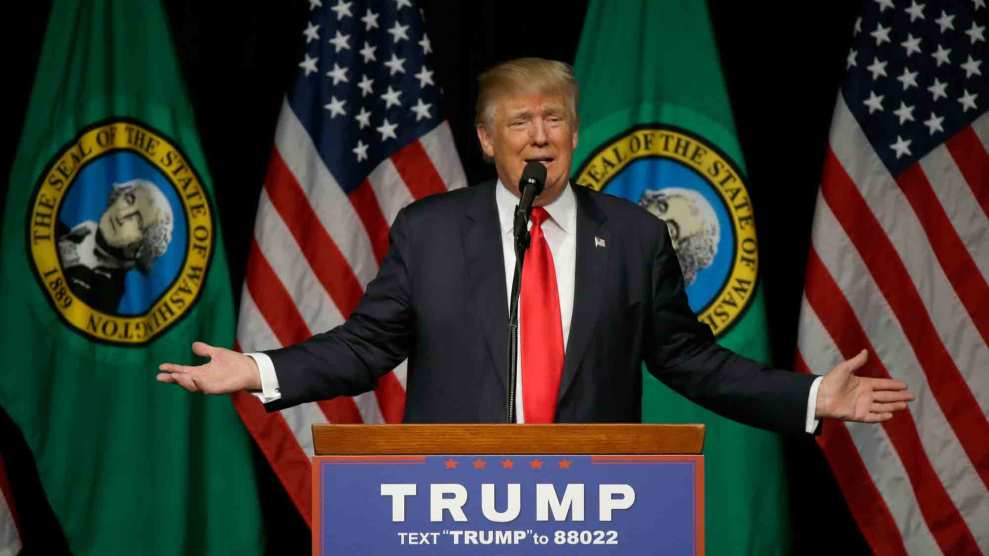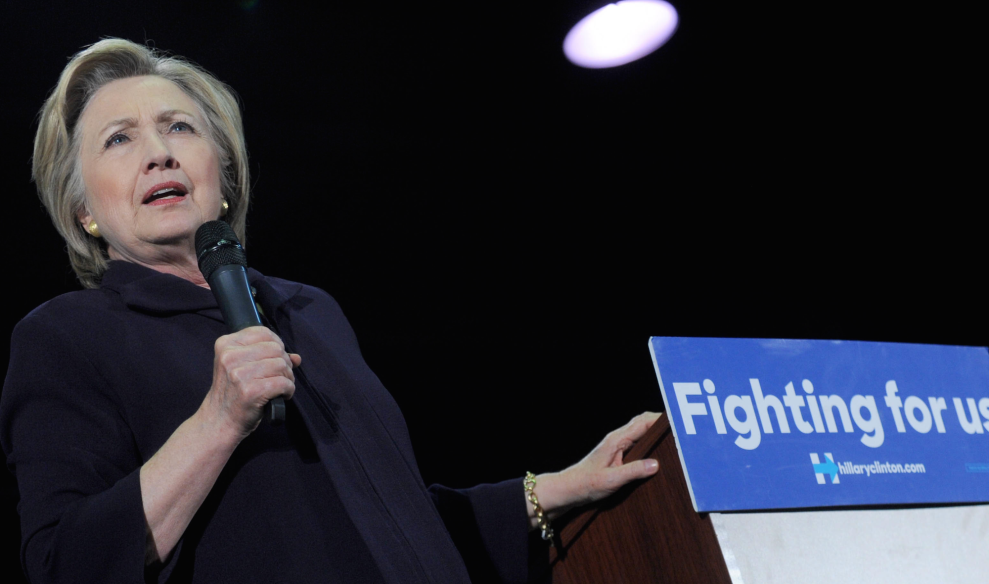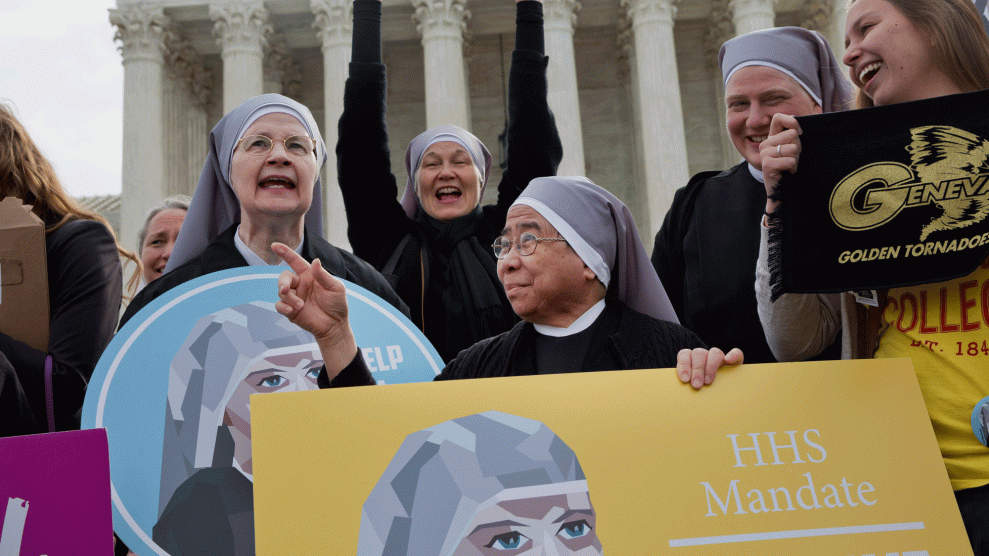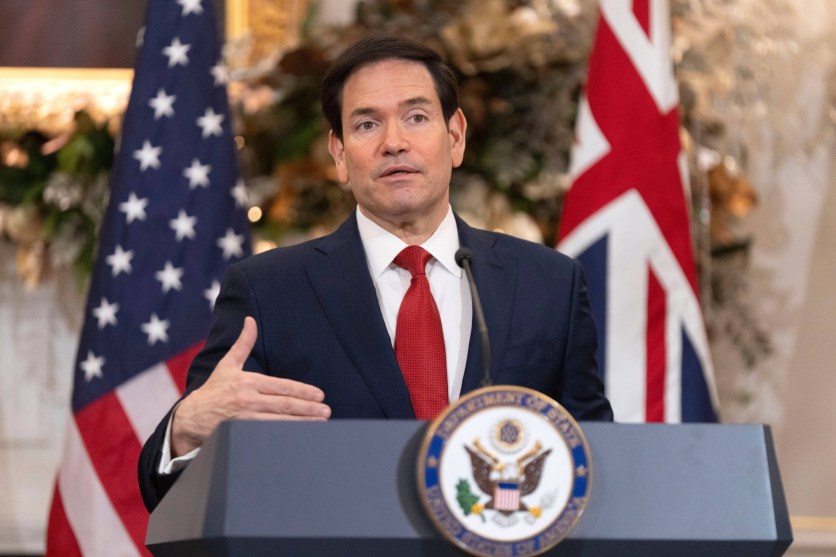
Donald Trump appears for jury duty in 2015.AP Photo/Richard Drew
Sorry, Paul Clement. Your hopes of taking a seat on the US Supreme Court appear to be doomed. Clement is one of the brightest—and highest paid—conservative litigators in the Supreme Court firmament, having served as solicitor general for George W. Bush and clerked for Justice Antonin Scalia. He’s also defended same-sex marriage and opposed Obamacare before the high court. But the legal luminary wasn’t on the list of potential Supreme Court candidates released Wednesday by presumptive GOP presidential nominee Donald Trump.
Instead, Trump seems to have cut and pasted the names of most of his candidates (minus Clement) from dream-team lists publicly drawn up previously by the the Heritage Foundation, an influential, socially conservative think tank. Unlike Clement, who’s long been considered a potential future justice, many of those on Trump’s list are far more outspoken in their views on issues that resonate most with conservatives, particularly those in the evangelical wing who so far aren’t all that enamored with the three-times-married Trump—people who might include Clement. Most of those on the short list hew closely to social conservatives’ views on abortion and contraception, particularly when it comes to the contraceptive mandate created in the Affordable Care Act. Among them are:
Steven Colloton, 8th Circuit Court of Appeals: Colloton was on a panel of judges that struck down the Obama administration’s accommodations for religious organizations seeking an exemption from the contraceptive mandate in the Affordable Care Act, saying that even the process of opting out of the mandate was a burden on their religious freedom. (Every other federal court to consider the issue found the regulations acceptable.) That decision enabled the Supreme Court to take up the issue. (It released an opinion this week sending the cases back to the lower courts to work out an agreement between the parties.) Colloton also worked for Ken Starr when he was the independent counsel investigating Bill Clinton during the Whitewater/Monica Lewinsky affair.
William Pryor, 11th Circuit Court of Appeals: Pryor was such a toxic nominee when President George W. Bush chose him for a federal judgeship in 2003 that Senate Democrats initially filibustered him. Pryor has referred to Roe v. Wade, the Supreme Court decision making abortion legal, as “creating a constitutional right to murder an unborn child.” As Alabama’s attorney general, he filed an amicus brief before the Supreme Court supporting Texas’s anti-gay sodomy law—he was the only state attorney general to do so. In 2014, he was on a panel of judges that barred the Obama administration from enforcing the contraceptive mandate against EWTN, a Catholic TV network. While on the court, he voted to continue a ban on volunteers feeding homeless people near the city hall in Orlando, Florida; upheld a restrictive Georgia voter ID law; and refused to block the use of opening prayers at government meetings in Cobb County, Georgia.
Raymond Gruender, 8th Circuit Court of Appeals: A colleague of Colloton’s, Gruender is well known for having written the circuit court’s opinion in a 2006 case concluding that a company insurance plan could exclude birth control pills from coverage, and that such a denial would not violate the Pregnancy Discrimination Act. The opinion took aim at a Clinton-era policy finding that the Act did entitle women to contraceptive coverage, and it was used extensively by anti-abortion advocates to attack the contraceptive mandate in the Affordable Care Act.
While Trump’s choices might diversify the court in terms of educational backgrounds—several are not Ivy Leaguers (unlike Clement, who graduated from Harvard Law School)—they seem clearly chosen to try to shore up his prospects with religious conservatives who care deeply about the high court and are suspicious of a nominee who once praised Planned Parenthood. It’s unclear whether simply promising to pick an anti-reproductive-freedom Supreme Court justice will be enough to persuade evangelicals to ignore his history as a playboy New Yorker with an utter lack of familiarity with the Bible, but it’s probably a decent start.

















